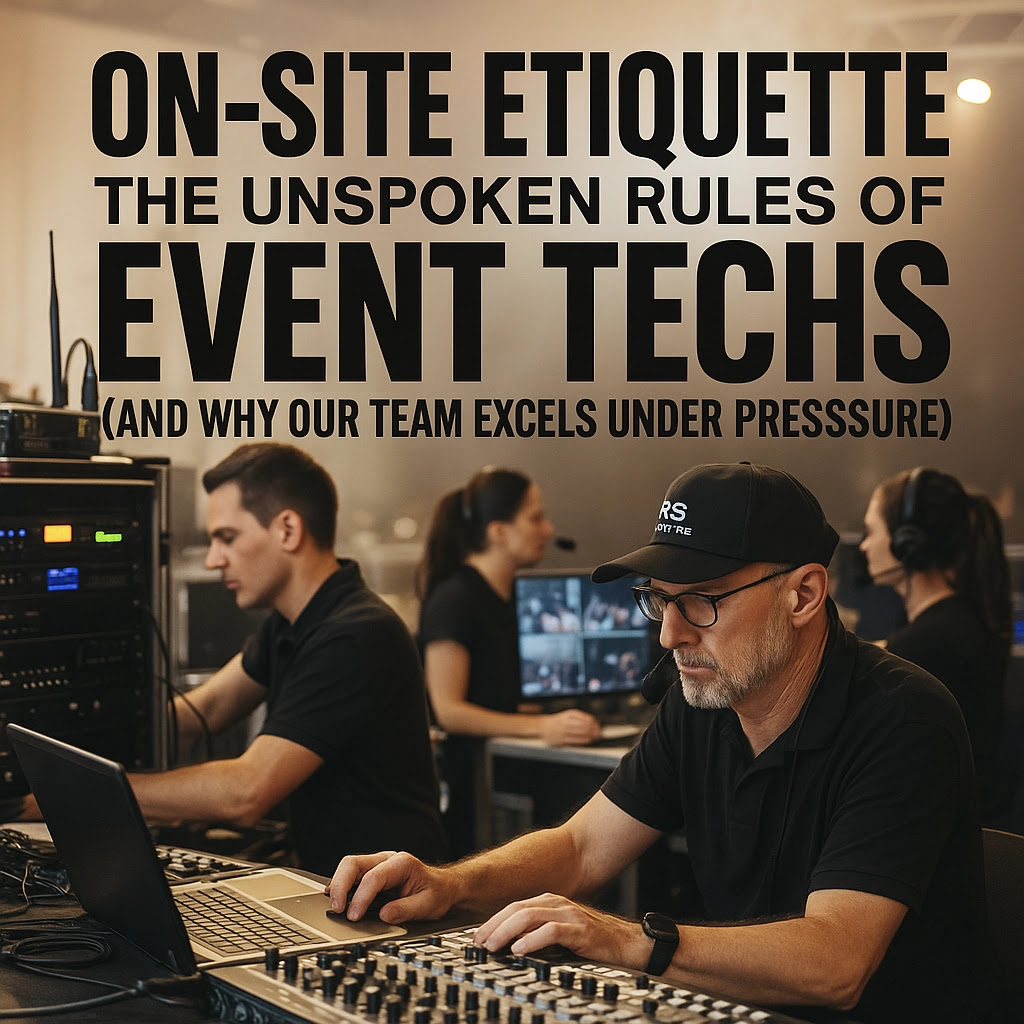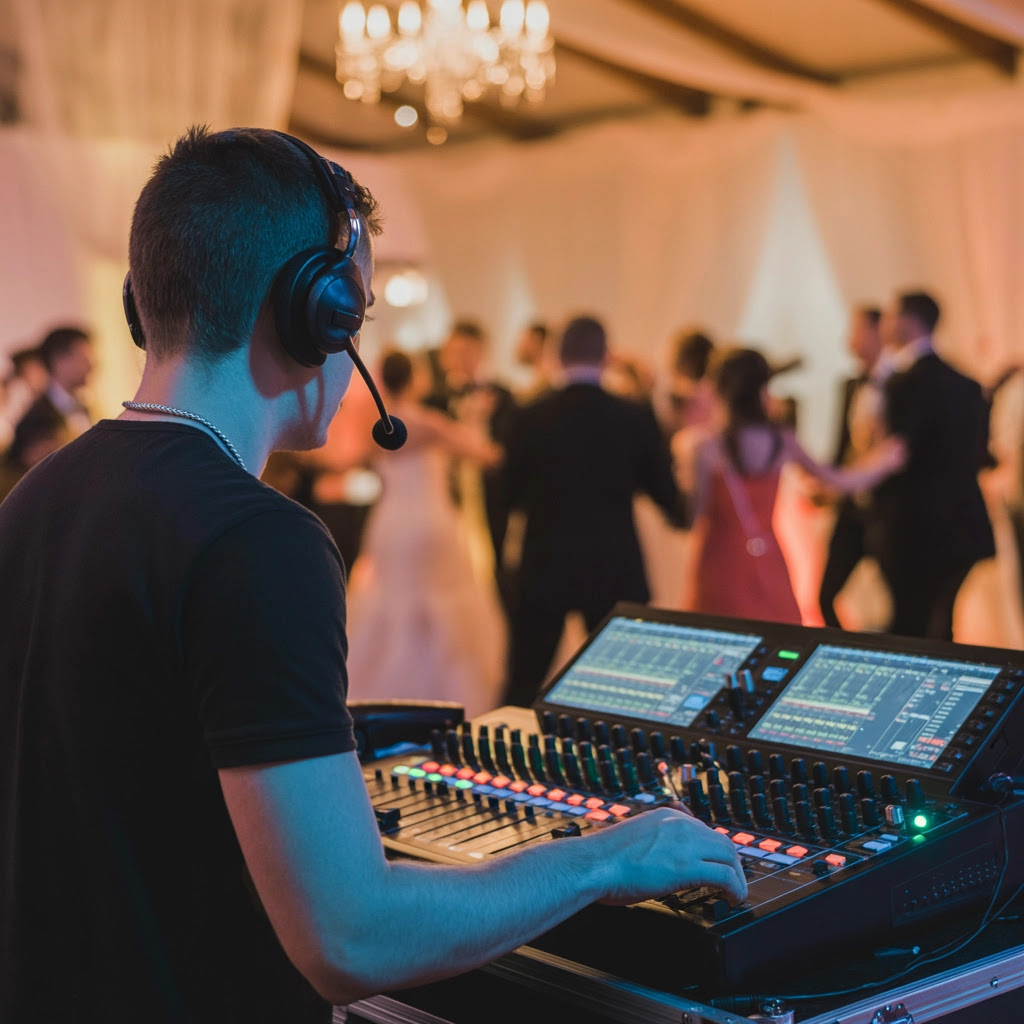The Hidden Choreography Behind Every Successful Event
Behind every flawless wedding reception, corporate gala, or music festival lies an invisible choreography that few guests ever notice. While the bride and groom share their first dance or the keynote speaker delivers their address, an entire team of audio and lighting professionals is quietly executing a complex dance of their own—managing equipment, troubleshooting issues, and navigating interpersonal dynamics that could make or break the event.
At RS Sound Inc., we’ve learned that technical expertise is only half the equation. The other half? Mastering the unwritten social protocols that govern how we interact with clients, vendors, performers, and each other when the pressure is on.
The Pressure Cooker Reality of Event Production
Let’s be honest: events are pressure cookers. The combination of tight timelines, high expectations, and the inherent unpredictability of live productions creates an environment where tensions can flare at a moment’s notice:
- The wedding planner realizes the ceremony is running 30 minutes behind schedule
- The lead singer requests a last-minute monitor adjustment two minutes before walking onstage
- The corporate client decides to rearrange the room layout an hour before guests arrive
- Equipment behaves unpredictably despite thorough testing
These situations aren’t hypothetical—they happen at nearly every event. What separates professional audio teams from amateur operations isn’t whether these challenges arise, but how they’re handled when they do.


